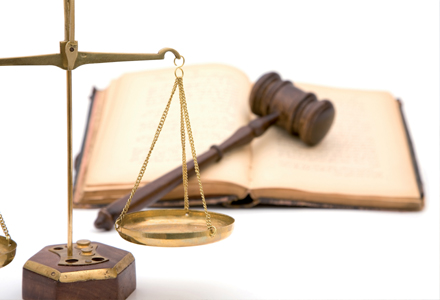
The legality of the UK's aggregates tax still hangs in the balance after an earlier ruling was overturned by the European Court of Justice. Minerals lawyer Robert Camp looks at the case
In 2002, the UK government introduced the Aggregates Levy (with the approval of the
The
The dispute was referred to the European Court of First Instance (CFI) which ruled, in September 2006, that the UK Aggregates Levy was lawful and did not constitute State Aid. The court cited the validity of the UK government's aim to protect the environment, and it also disagreed with the logic that a disadvantage to one business would necessarily constitute an advantage to its neighbour.
Not surprisingly BAA, having seen some £600million (€709million) in levies extracted from its members every year by the UK treasury, appealed the CFI's judgment before the European Court of Justice (ECJ). On 22 December last year advocate general Paolo Mengozzi quashed the earlier ruling and referred the entire case back to the CFI.
BAA's legal team say the CFI's judgment contained two fundamental legal errors. The first concerned the use of an incorrect definition of state aid, namely that a member state does not trigger the application of EU state aid law if it imposes an environmental tax on one sector causing environmental harm, but not on other sectors causing the same environmental harm.
State Aid is generally defined as aid from a member state to business which is generally incompatible with the common market because it has the potential to distort competition and affect trade between EU member states. The European Commission regulates the actions of member states and governments for actions which could inhibit competition and intra-community trade, and uses Article 87(1) of the European Convention as its weapon of choice. Article 87(1) is a broad piece of legislation that its interpretation was always going to be open to debate.
However, according to the ECJ, sectors that cause the same environmental damage must be treated similarly, but since it can be argued that the UK Aggregates Levy does the opposite, the inevitable conclusion is that the levy involves the grant of State Aid.
According to the BAA, the CFI's other fundamental legal error was that it did not conduct a comprehensive review of the legal basis of the Commission's original decision to allow the UK to introduce the levy in the first place, and that had impugned the very basis of the CFI's ruling.
The CFI is now in the position of having to 'reconsider' its earlier judgement. Based on the ECJ's comments, it is almost inconceivable that the CFI will do anything other than conclude that the UK levy does constitute illegal State Aid and will have to be scrapped altogether or radically changed.
If it is assumed that sectors that cause the same environmental damage must be treated similarly, then in order to comply with State Aid legislation under Article 87(1) many believe the levy might have to be applied retrospectively to sectors of the industry that are currently exempt, including china clay and slate.
BAA is now urging the UK government to suspend the levy altogether in light of the ECJ's comments and enter into talks with the industry.




